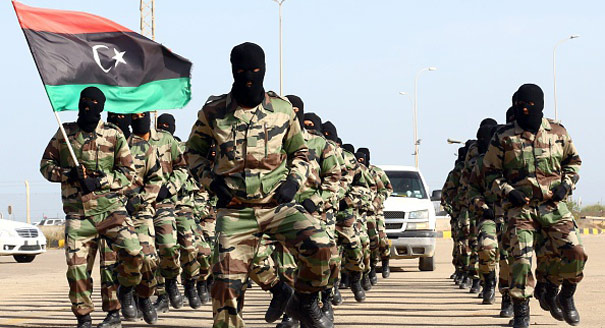Registration
You will receive an email confirming your registration.
Libya is on the brink of a civil war. Clashes between the Government of National Accord and its eastern opponents are tearing apart one of Europe’s crucial partners in the South. While a fragmented and unstable Libya poses a serious security threat to the EU, European leaders have not been able to come forward with a consolidated response. Similarly, following the toppling of Muammar Gaddafi in 2011, a stable Libya remains a top priority for NATO’s regional strategy.
Carnegie Europe hosted a public event to assess how developments in Libya could impact the EU and NATO. Benedetta Berti from NATO, Libyan ambassador Nureddin Mazen, and Colin Scicluna from the European External Action Service discussed the regional implications of the Libyan conflict with Carnegie Europe visiting researcher Stefano Marcuzzi. Teri Schultz, a freeland journalist covering the EU and NATO, moderated.
A sandwich lunch followed.
Benedetta Berti
Benedetta Berti is the head of policy planning in the office of the NATO secretary general. Follow her on Twitter @benedettabertiw.
Stefano Marcuzzi
Stefano Marcuzzi is a Marie-Curie fellow at University College Dublin and visiting researcher at Carnegie Europe. Follow him on Twitter @StefMarcuzzi.
Nureddin Mazen
Nureddin Mazen is the Libyan ambassador in Brussels.
Lorenzo Kluzer
Lorenzo Kluzer is the head of the Libya Desk at the European External Action Service.
Teri Schultz
Teri Schultz is a freelance reporter covering the EU and NATO for NPR and Deutsche Welle. Follow her on Twitter @terischultz.
